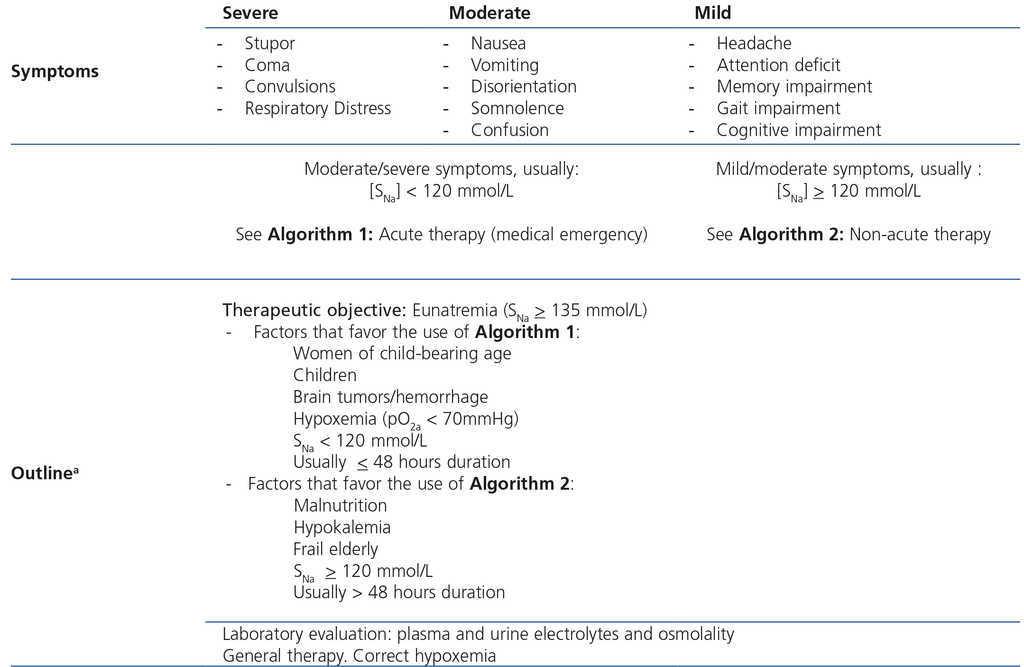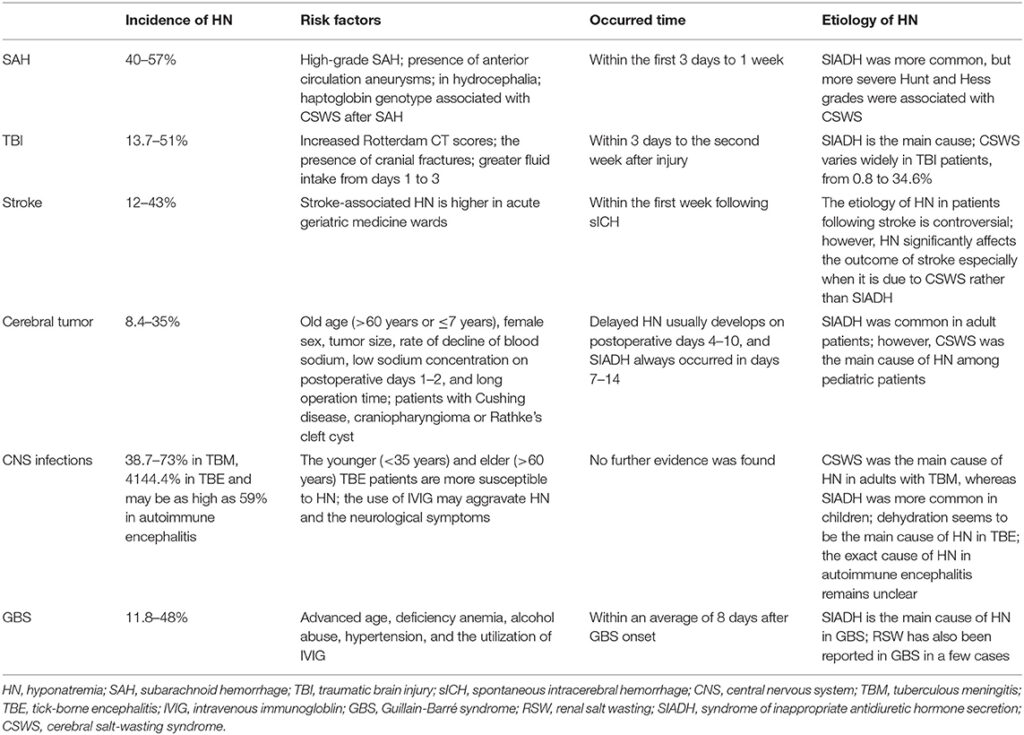The Syndrome of Inappropriate Antidiuretic Hormone Secretion, commonly abbreviated as SIADH, is a medical condition that affects the body’s ability to regulate water balance. This disorder occurs when the body produces an excessive amount of antidiuretic hormone, also known as vasopressin, leading to an imbalance in fluid levels. Understanding this condition is crucial for both patients and healthcare providers, as it can have significant implications on overall health if left untreated.

What is the Syndrome of Inappropriate Antidiuretic Hormone Secretion?
The Syndrome of Inappropriate Antidiuretic Hormone Secretion is a condition where the body releases too much of a hormone called antidiuretic hormone. This hormone plays a vital role in controlling the balance of water in the body by regulating how much water the kidneys reabsorb. When there is an overproduction of this hormone, the kidneys retain more water than necessary, leading to a dilution of sodium levels in the blood. Low sodium levels, or hyponatremia, can cause a variety of symptoms and complications.
Causes of the Condition
- Certain Medications: Some drugs, such as antidepressants, painkillers, and chemotherapy agents, can stimulate the release of antidiuretic hormone.
- Underlying Medical Conditions: Disorders like lung diseases, brain injuries, or certain types of cancer can trigger the inappropriate secretion of the hormone.
- Hormonal Imbalances: Issues with the pituitary gland or hypothalamus, which control hormone production, can lead to this condition.
- Surgical Procedures: Certain surgeries, particularly those involving the brain or spinal cord, may disrupt normal hormone regulation.
Symptoms of the Condition
The symptoms of this condition often arise due to low sodium levels in the blood. These symptoms can vary in severity depending on how quickly sodium levels drop and how low they become. Common signs include:
- Fatigue and Weakness: Patients may feel unusually tired or weak, even after minimal physical activity.
- Nausea and Vomiting: Digestive issues are common and can contribute to dehydration despite the body retaining water.
- Mental Confusion: Low sodium levels can affect brain function, leading to confusion, difficulty concentrating, or memory problems.
- Muscle Cramps and Spasms: Electrolyte imbalances caused by low sodium levels can result in muscle discomfort.
- Seizures: In severe cases, very low sodium levels can trigger seizures or loss of consciousness.
It is important to note that some individuals may not experience noticeable symptoms initially, especially if sodium levels decrease gradually. However, even mild symptoms should not be ignored, as they can worsen over time without proper treatment.
Diagnosis of the Condition
Diagnosing the Syndrome of Inappropriate Antidiuretic Hormone Secretion requires a thorough evaluation by a healthcare professional. The diagnostic process typically involves several steps to confirm the presence of the condition and identify its underlying cause.
Medical History and Physical Examination
A detailed medical history is essential for identifying potential triggers or risk factors. The healthcare provider will ask about recent illnesses, medications, and any family history of hormonal disorders. A physical examination may reveal signs of fluid retention, such as swelling in the hands or feet, or neurological symptoms like confusion.
Laboratory Tests
- Blood Tests: Blood samples are analyzed to measure sodium levels and assess kidney function. Low sodium levels combined with normal kidney function are indicative of the condition.
- Urine Tests: Urine samples are examined to determine the concentration of sodium and other electrolytes. High sodium levels in the urine suggest that the kidneys are retaining water inappropriately.
- Hormone Levels: Measuring the levels of antidiuretic hormone in the blood can help confirm the diagnosis.
Imaging Studies
In some cases, imaging tests such as MRI or CT scans may be performed to check for abnormalities in the brain or other organs that could be causing the condition. For example, tumors in the lungs or brain might produce antidiuretic hormone in excess.
Treatment and Management
The treatment of the Syndrome of Inappropriate Antidiuretic Hormone Secretion focuses on addressing the underlying cause while managing symptoms and restoring normal sodium levels. The approach to care depends on the severity of the condition and the patient’s overall health.
Addressing the Underlying Cause
If the condition is caused by medication, adjusting the dosage or switching to an alternative drug may resolve the issue. For patients with underlying medical conditions, treating the primary disorder can help normalize hormone levels. In cases where tumors are responsible, surgical removal or radiation therapy may be necessary.
Fluid Restriction
One of the most common treatments involves limiting fluid intake. By reducing the amount of water consumed, the body can gradually restore sodium levels to a healthy range. Healthcare providers typically recommend specific daily fluid limits based on the severity of the condition.
Medications
- Demeclocycline: This antibiotic can block the effects of antidiuretic hormone on the kidneys, allowing the body to excrete excess water.
- Vaptans: A newer class of drugs called vaptans works by inhibiting the action of antidiuretic hormone, helping to correct sodium imbalances.
Monitoring Sodium Levels
Regular monitoring of sodium levels is critical during treatment to ensure that they return to normal safely. Rapid correction of sodium levels can lead to complications such as osmotic demyelination syndrome, a serious neurological condition. Therefore, adjustments to treatment plans are made carefully and gradually.
Preventive Measures and Long-Term Care
While it may not always be possible to prevent the Syndrome of Inappropriate Antidiuretic Hormone Secretion, certain measures can reduce the risk of developing the condition or experiencing complications.
Medication Review
Patients taking medications known to increase antidiuretic hormone levels should discuss alternatives with their healthcare provider. Regular reviews of prescription drugs can help minimize risks.
Healthy Lifestyle Choices
- Balanced Diet: Consuming a diet rich in electrolytes, including sodium, can help maintain proper fluid balance.
- Hydration Awareness: While staying hydrated is important, excessive water intake should be avoided, especially for individuals at risk of the condition.
Regular Check-Ups
Individuals with chronic conditions that predispose them to this syndrome should undergo regular medical evaluations. Early detection of hormonal imbalances or related issues can prevent complications.
Complications of Untreated Cases
If left untreated, the Syndrome of Inappropriate Antidiuretic Hormone Secretion can lead to severe complications. Prolonged low sodium levels can cause permanent damage to the brain and nervous system. Additionally, untreated cases may result in frequent hospitalizations due to worsening symptoms or secondary conditions.
Impact on Quality of Life
Chronic fatigue, cognitive impairment, and recurrent episodes of nausea can significantly affect a patient’s daily life. Addressing the condition promptly is essential to preserving overall well-being and preventing long-term consequences.




